Hordes of booksellers are swarming the Charm City this week, and the buzz is about more than just books. As ABA’s Winter Institute #15 got underway today, there was lots of pre-conference activity, from tours of the Penguin Random House fulfillment center in Westminster, Md., to participation in an anti-trust seminar in nearby Washington D.C., featuring leading authors and experts discussing the extraordinary dominance of Amazon in the retail and technology sectors of our economy. Pre-Winter Institute workshops also filled the day’s agenda, with sessions ranging from seminars on used book sales to small store buying (the books for small stores, that is, not the purchase of smaller retail businesses), a caucus gathering for small publishers, and an old favorite with new panelists entitled “The Life Cycle of a Book,” tracing each step in the publication process from editorial and design to marketing, distribution and promotion. Of course, entire hives of busy booksellers dipped in and out of local bookstores and literary attractions throughout the day, and gathered in hallways and hotel lobbies to greet old friends, put faces to names formerly known only on social media, and discuss current issues.

There is much to discuss, and this year, more than others in my recent memory, booksellers have come to Winter Institute with a list of topics to address: some as problems needing solutions, some as confusing options needing clarification, and some as issues seeking advocacy from a trade organization with resources and contacts to employ on their behalf. As I circulated among conversations this afternoon and evening at the Welcome Reception, the following issues were at the front and center of the collective hive:
Publisher Credit Accounts and Batch: The long-awaited, much described and wished-for single payment system for booksellers to handle publisher invoices seems to be a bit closer to reality, and those booksellers who signed up for individual appointments with Batch for Books were peppered with questions at the opening cocktail party.
Distressing Damages: Following a Christmas season in which book damages, late shipments, and lost sales opportunities loom large in the memory of booksellers, multiple conversations about shipping and delivery systems were hashed out over wine and crackers with crab dip (a delicious Baltimore addition to the conversation). This is a topic which many booksellers intend to bring up in face-to-face sessions with publisher partners over the next few days.
Bookshop.com and IndieBound and the cast of thousands: There is surely an “I Love Lucy”-in-the-candy-factory scene to be cast with all the hundreds of theories, explanations, and questions about the simultaneously appearing programs to make indie bookstores more visible and competitive online. The problem is that very few bookstore owners actually understand the offerings, or can articulate the differences between them and their benefits. ABA clearly “has some ‘splainin to do” on all these treats, and the outside vendors for competing programs need to be just as well articulated.
Regional Relevance: In a year in which several regional associations changed leadership, structure or scope, and in which the historically profitable model of printed holiday catalogs funded by publisher advertisements was questioned as an effective tool for funding organizations bound by rather abstract geography rather than store similarity, there continues to be much discussion about the best role for regionals. Alliances between neighboring regional associations seem strengthened, but in an age of global digital customer purchases and hyper-local retail identities, the marketing power of regionals is a conundrum, and clearly a subject of discussion over another round of Dogfish IPA.
The Life Cycle of Bookselling Career: Succession planning, preventing burnout and promoting work/life balance, career development for younger booksellers, family management and childcare options, eldercare concerns, and the psychological toll of independent business management were all frequent topics of conversation among booksellers as they caught up on their colleagues’ years. In an industry where each store’s business identity is frequently tied to the founder, the day-to-day operation of a successful bookstore stretches into decades of solo entrepreneurship, with little outside support. Finding ways to create structure that supports a healthy work/life balance is a constant challenge for booksellers, and a constant topic of discussion.
All of these discussions, and many more besides, will continue over the next few days in Baltimore, and I look forward to sharing them with you. As we end the pre-Day 1 activities, here’s a peek at some of the folks I saw on Tuesday at Wi15:
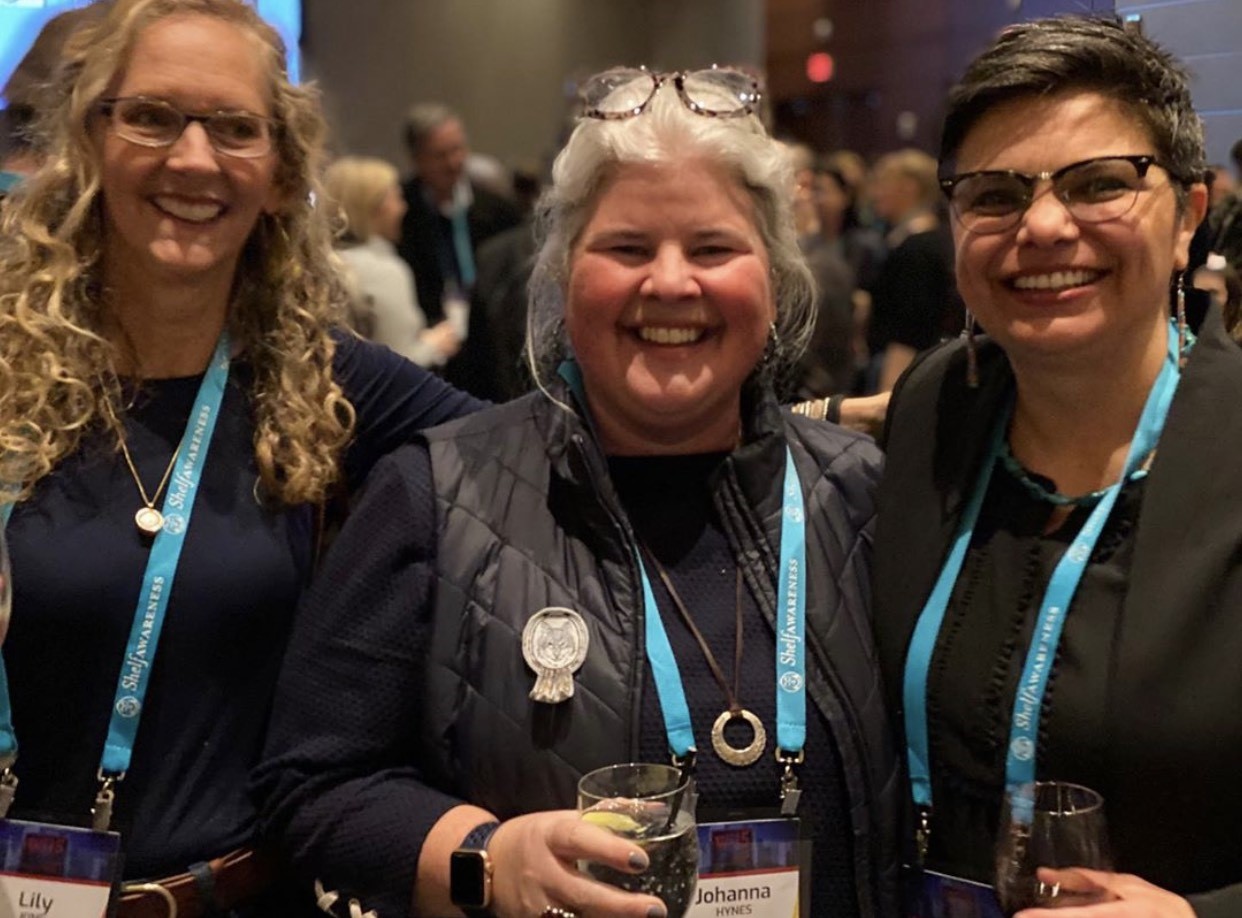
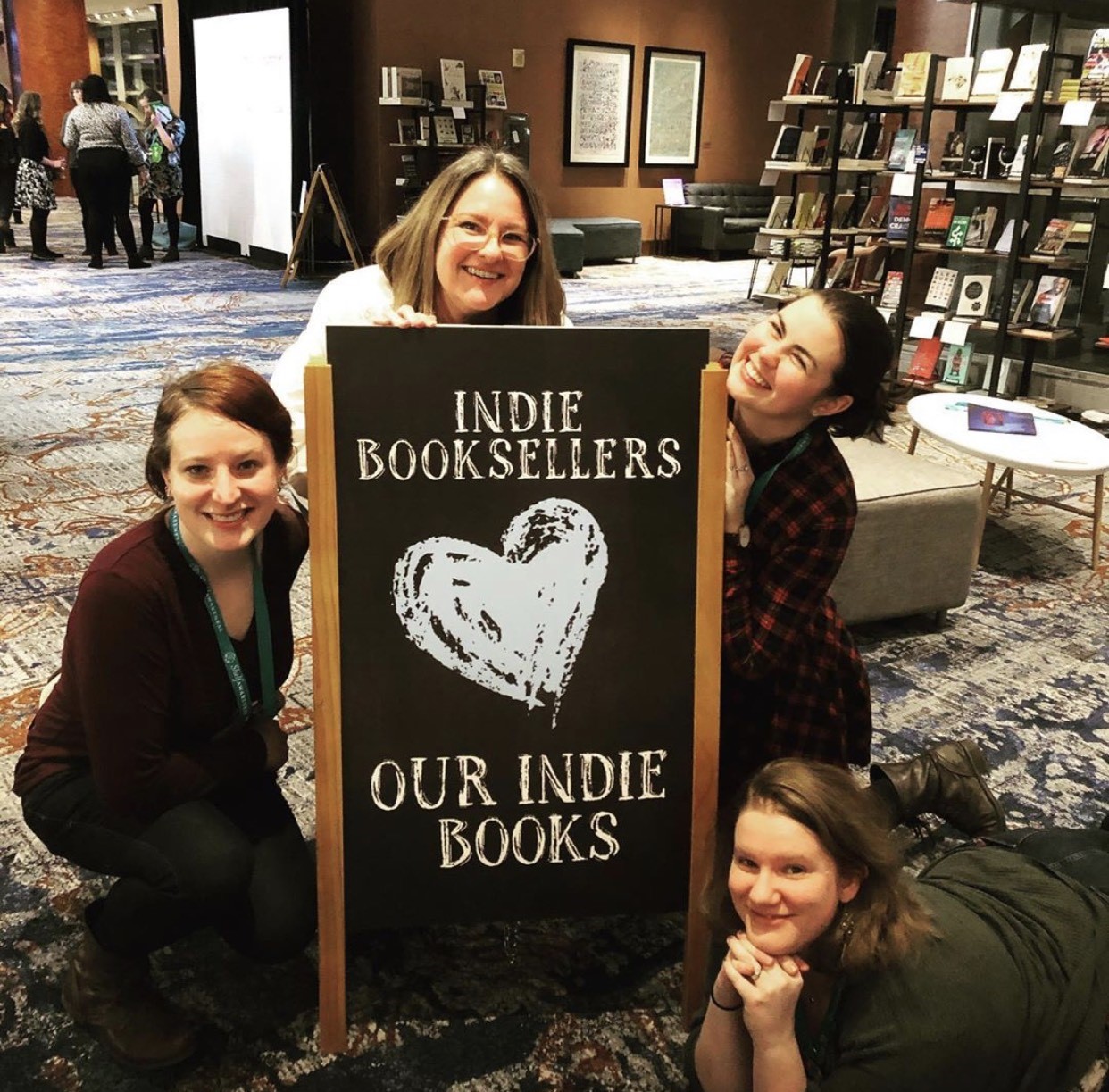
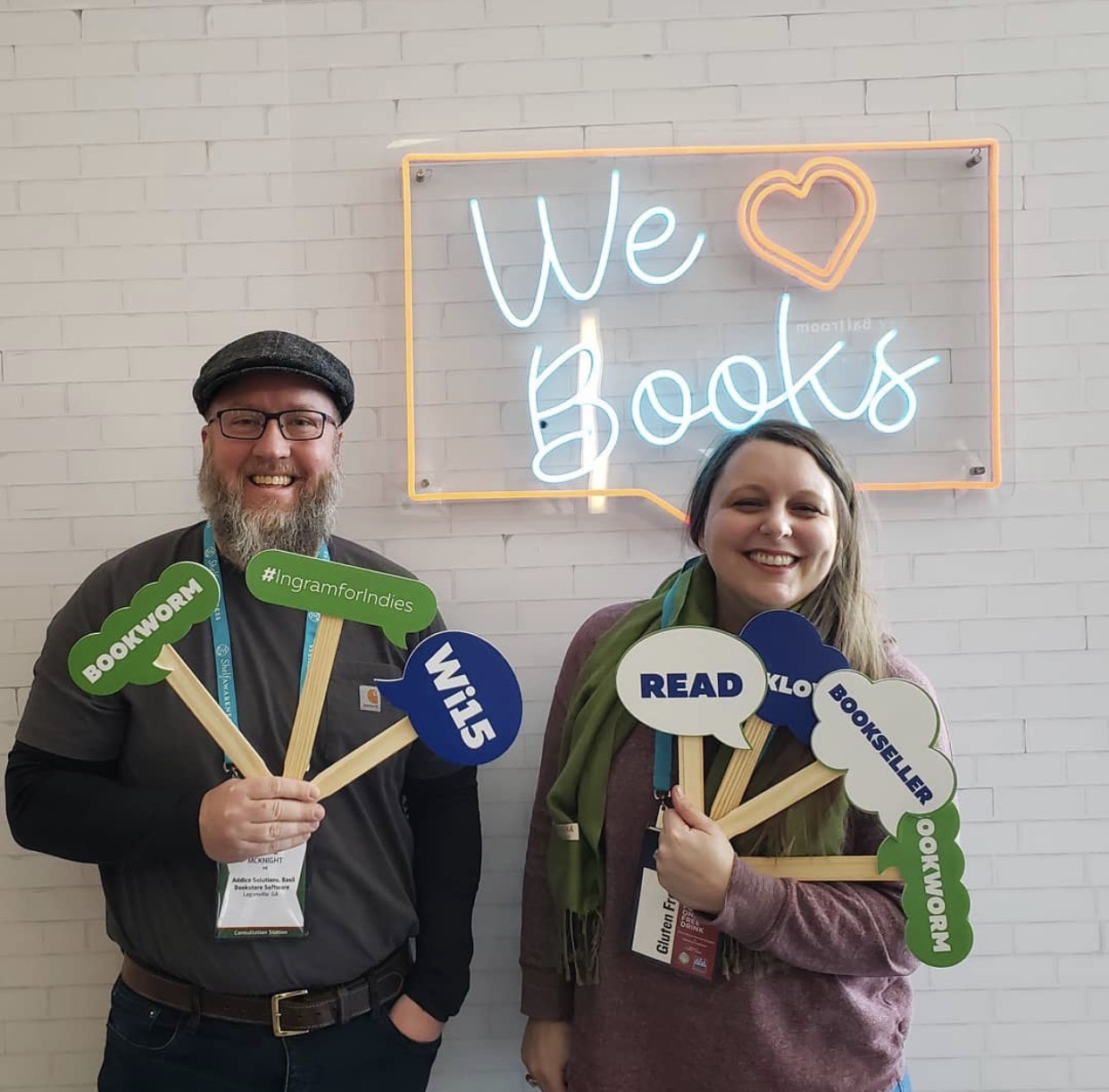
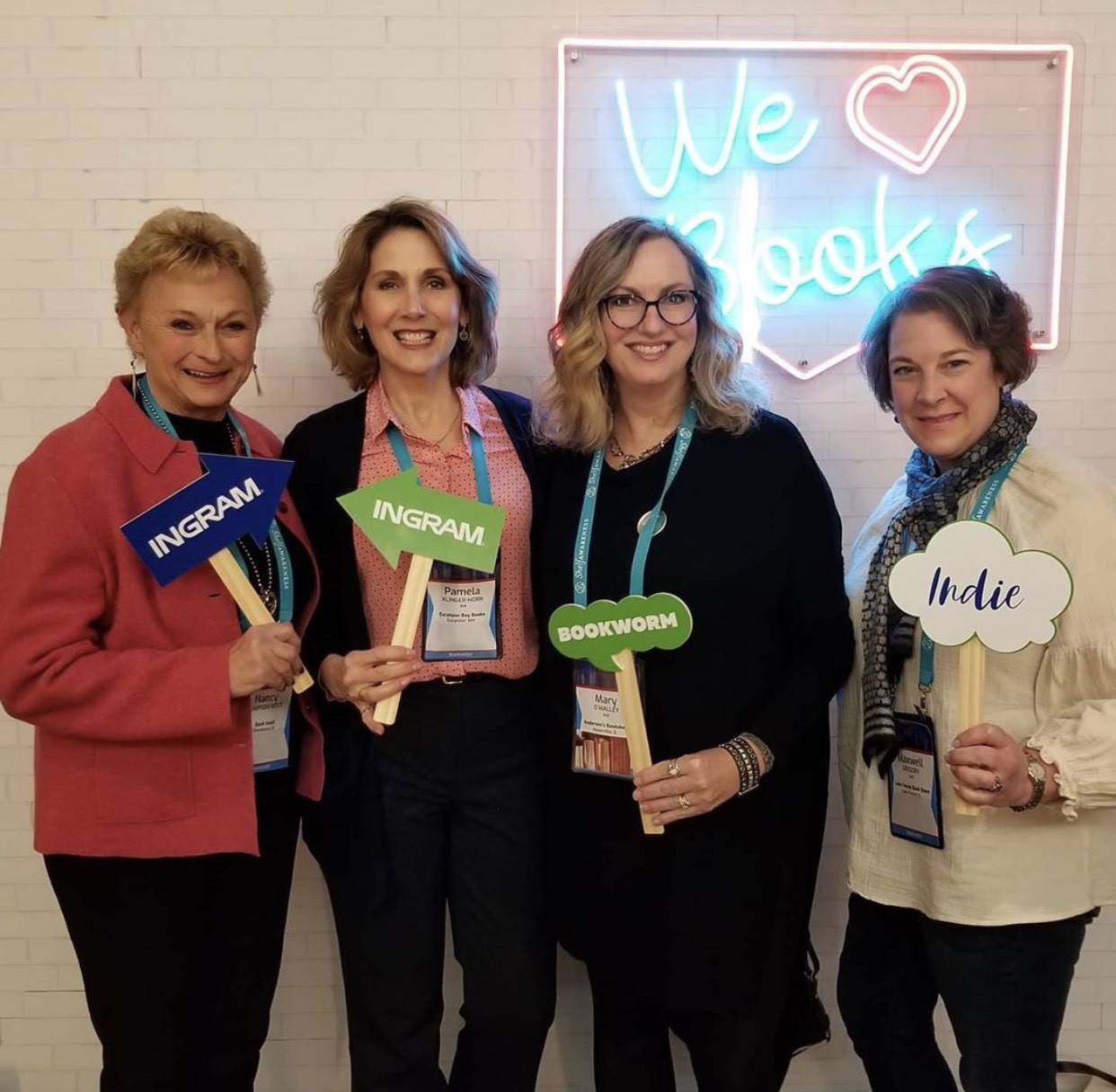
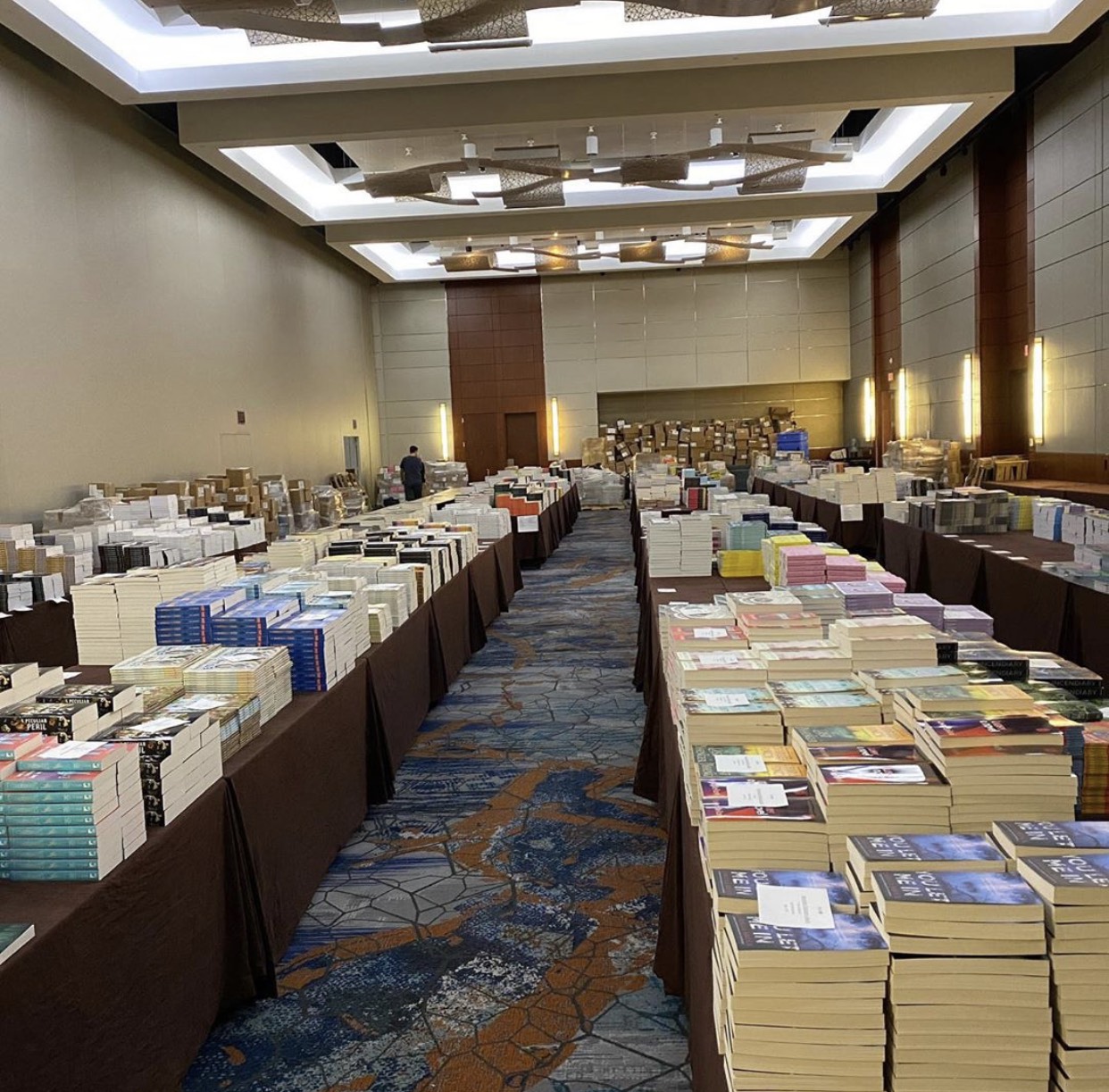
shhhh…. I snuck in to take this pic of the galley room, which opens tomorrow. Let me know if you want something.
